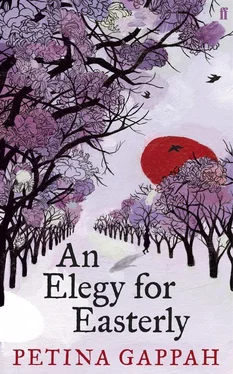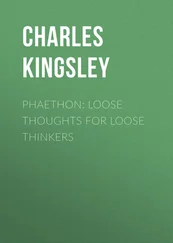Petina Gappah - An Elegy for Easterly
Здесь есть возможность читать онлайн «Petina Gappah - An Elegy for Easterly» весь текст электронной книги совершенно бесплатно (целиком полную версию без сокращений). В некоторых случаях можно слушать аудио, скачать через торрент в формате fb2 и присутствует краткое содержание. Год выпуска: 2009, Издательство: Faber & Faber, Жанр: Современная проза, на английском языке. Описание произведения, (предисловие) а так же отзывы посетителей доступны на портале библиотеки ЛибКат.
- Название:An Elegy for Easterly
- Автор:
- Издательство:Faber & Faber
- Жанр:
- Год:2009
- ISBN:нет данных
- Рейтинг книги:4 / 5. Голосов: 1
-
Избранное:Добавить в избранное
- Отзывы:
-
Ваша оценка:
- 80
- 1
- 2
- 3
- 4
- 5
An Elegy for Easterly: краткое содержание, описание и аннотация
Предлагаем к чтению аннотацию, описание, краткое содержание или предисловие (зависит от того, что написал сам автор книги «An Elegy for Easterly»). Если вы не нашли необходимую информацию о книге — напишите в комментариях, мы постараемся отыскать её.
An Elegy for Easterly — читать онлайн бесплатно полную книгу (весь текст) целиком
Ниже представлен текст книги, разбитый по страницам. Система сохранения места последней прочитанной страницы, позволяет с удобством читать онлайн бесплатно книгу «An Elegy for Easterly», без необходимости каждый раз заново искать на чём Вы остановились. Поставьте закладку, и сможете в любой момент перейти на страницу, на которой закончили чтение.
Интервал:
Закладка:
with Mupandawana District Development Council is
proud to present the search for the:
Mupandawana
Dancing
Champion
Join us for a night of celebration and dancing!
One Night Only!!
Details followed of the competition to be held a fortnight from then, and the main prizes to be won, the most notable of which was one drink on the house once a week for three months.
Mupandawana is a place of few new public pleasures. In the following two weeks, the excitement escalated and reached a pitch on the night itself. In their cheap and cheerful clothes, Mupandawana’s highest and lowest gathered in the main room of the Why Leave Guesthouse and poured out into the night: the lone doctor doing penance at the district hospital, the nurses, the teachers, the security guards, the storekeeper from Chawawanaidyanehama Cash and Carry and his two giggling girl assistants, the District Commissioner in all his frowning majesty, the policemen from the camp, a few soldiers, the people from the nearby and outlying villages.
Tapping feet and impatient twitches and shakes showed that the people were itching to get started, and when Felicitas turned on the music, they needed no further encouragement. The music thumped into the room, the Bhundu Boys, Alick Macheso and the Orchestra Mberikwazvo, Andy Brown and Storm, System Tazvida and the Chazezesa Challengers, Cephas ‘Motomuzhinji’ Mashakada and Muddy Face, Hosiah Chipanga and Broadway Sounds, Mai Charamba and the Fishers of Men, Simon ‘Chopper’ Chimbetu and the Orchestra Dendera Kings, Tongai ‘Dehwa’ Moyo and Utakataka Express, and, as no occasion could be complete without him, Oliver ‘Tuku’ Mtukudzi and the Black Spirits. They sang out their celebratory anthems of life gone right; they sang out their woeful, but still danceable, laments of things gone wrong. And to all these danced the Growth Pointers, policeman and teacher, nurse and villager, man and woman, young and old. There was kongonya , more kongonya , and naturally more kongonya — ruling party supporters in Mupandawana are spread as thickly as the rust on the ancient Peugeot 504 that the Honourable’s son crashed and abandoned at Sadza Growth Point. Bobojani was in there with the best of them, shuffling a foot away from the District Commissioner, while Jeremiah and I watched from the bar.
The Growth Pointers did themselves proud. The security guard who stood watch outside the Building Society danced the Borrowdale even better than Alick Macheso, its inventor. Dzinganisayi, widely considered to be the Secretary-General of the Mupandawana branch of ZATO (aka the Zimbabwe Association of Thieves’ Organisations) proved to be as talented on the dance floor as he was in making both attended and unattended objects vanish. Nyengeterayi from Chawawanaidyanehama Cash and Carry got down on hands and knees and improvised a dance that endangered her fingers, given the stomping, dancing feet around her.
And who knew that the new fashion and fabrics teacher could move her hips like that? As I watched her gyrate to Tuku, a stirring arose in my loins, and I began to reconsider the benefits of long-term companionship.
Then, out of the corner of my eye, I saw M’dhara Vita enter the room.
He was dressed in a suit that declared its vintage as circa 1970s. The trouser legs were flared, while the beltline that must have once hugged his hips and waist was rolled up and tied around his waistline with an old tie. The jacket had two vents at the back. He wore a bright green shirt with the collar covering that of his jacket. On his head was a hat of the kind worn by men of his age, but his was set at a rakish angle, almost covering one eye. And on his feet were one-third of his pension.
‘ Ko , Michael Jacksonka,’ Jeremiah said as we nudged each other.
M’dhara Vitalis gave us a casual nod as, showing no signs of painful feet, he walked slowly to the dance floor.
And then he danced.
The security guard’s Borrowdale became a Mbaresdale. Dzinganisayi’s movements proved to be those of a rank amateur. Nyengeterayi’s innovations were revealed to be no more than the shallow ambitions of callow youth. M’dhara Vitalis danced them off the floor to the sidelines where they stood to watch with the rest of us. He knew all the latest dances, and the oldest too. We gaped at his reebok and his water pump. He stunned us with his running man. He killed us with his robot. And his snake dance and his break-dance made us stand and say ho-o . His moonwalk would have made Michael himself stand and say ho-o . The floor cleared, until only he and the fashion and fabrics teacher were dancing.
M’dhara Vitalis was here. The teacher was there.
The teacher was here. M’dhara Vitalis was there.
M’dhara Vitalis moved his hips. The teacher moved her waist.
M’dhara Vitalis moved his neck and head.
The teacher did a complicated twirl with her arms.
M’dhara Vitalis did some fancy footwork, mapantsula style.
The teacher lifted her right leg off the ground and shook her right buttock.
And then Felicitas put on Chamunorwa Nebeta and the Glare Express. As the first strains of Tambai Mese Mujairirane filled the room, we saw M’dhara Vitalis transformed. He wriggled his hips. He closed his eyes and whistled. He turned his back to us and used the vent in the back of the jacket to expose his bottom as he said, ‘ Pesu, pesu ,’ moving the jacket first to one side and then to the other.
‘Watch that waist,’ I said to Jeremiah.
‘ Chovha George! ’ said the District Commissioner.
‘If only I was a woman,’ said Jeremiah.
That last dance sealed it, the fashion and fabrics teacher conceded the floor. By popular acclaim, M’dhara Vita was crowned Mupandawana Dancing Champion. It was a night that Mupandawana would not forget.

This was just as well because the one-night-only threat of the poster came true in a way that Felicitas had not anticipated. Two days after M’dhara Vita’s triumph, the Governor of our province summoned our Honourable MP to his office in Masvingo. A bright young spark, one of the countless army of men who are paid to get offended on behalf of the ruling party, had taken a careful look at the poster and noticed that the first letters of the words Mupandawana Dancing Champion spelled out the acronym of the opposition party, the unmentionable Movement for Democratic Change. Naturally, this had to be conveyed to the appropriate channels.
‘What business does a ruling party MP have in promoting the opposition, the puppets, those led by tea boys, the detractors who do not understand that the land is the economy and the economy is the land and that the country will never be a colony again, those who seek to reverse the consolidation of the gains of our liberation struggle,’ so said the Governor, shaking with rage. I only knew that he shook with rage because Felicitas said he did, and she only knew because the Honourable told her so.
The upshot of this was that there were no more dance competitions, and M’dhara Vita the coffin maker remained the undefeated dancing champion of our growth point. He took his a one-drink-a-week prize for what it was worth, insisting on a half-bottle of undiluted Château brandy every Friday evening. ‘Why can’t he drink Chibuku like a normal man his age?’ Felicitas asked, with rather bad grace, to which I responded that if he had been a normal man of his age, he would not have been the dancer he was.
To appreciate his skill is to understand that he was an old man. They had no birth certificates in the days when he was born, or at least none for people born in the rural areas, so that when he trained as a carpenter at Bondolfi and needed a pass to work in the towns, his mother had estimated his age by trying to recall how old he was when the mission school four kilometres from his village had been built. As befitting one who followed in the professional footsteps of the world’s most famous carpenter, he had chosen 25 December as his birthday, so that his age was a random selection and he could well have been older than his official years. What was beyond dispute was that he danced in defiance of the wrinkles around his eyes.
Читать дальшеИнтервал:
Закладка:
Похожие книги на «An Elegy for Easterly»
Представляем Вашему вниманию похожие книги на «An Elegy for Easterly» списком для выбора. Мы отобрали схожую по названию и смыслу литературу в надежде предоставить читателям больше вариантов отыскать новые, интересные, ещё непрочитанные произведения.
Обсуждение, отзывы о книге «An Elegy for Easterly» и просто собственные мнения читателей. Оставьте ваши комментарии, напишите, что Вы думаете о произведении, его смысле или главных героях. Укажите что конкретно понравилось, а что нет, и почему Вы так считаете.












